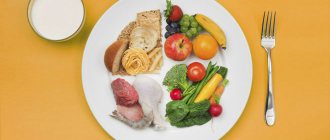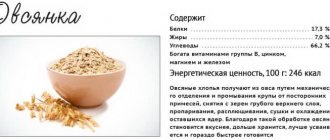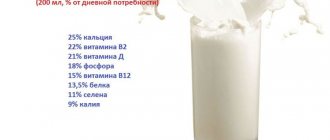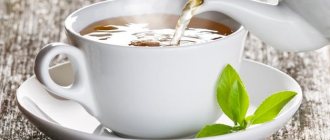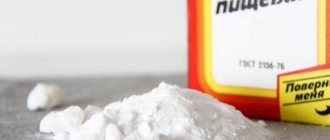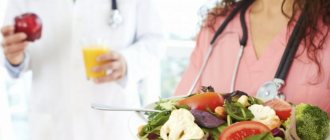General rules
Heartburn (a burning sensation behind the sternum and in the throat) is the most common symptom of various gastrointestinal diseases. As a rule, it is a consequence of the reflux of gastric contents into the esophagus ( gastroesophageal reflux ) and is considered a characteristic symptom of gastroesophageal reflux disease. Heartburn can also be a symptom of esophageal lesions (primary or secondary). Among the primary ones achalasia of the cardia , and from the secondary ones - lesions against the background of scleroderma , myxedema , systemic lupus erythematosus , rheumatoid arthritis , diabetes mellitus , amyloidosis , chronic alcoholism .
Causes and consequences of heartburn
The causes of this symptom may be functional conditions or, as mentioned above, diseases:
- Constant overeating - an increase in the volume of the stomach leads to relaxation of the lower esophageal sphincter, which creates favorable conditions for the appearance of pathological reflux.
- Physical activity immediately after eating.
- Changes in mental status (tension, anxiety, depression ).
- Gastrointestinal pathology – gastritis , duodenitis , biliary tract diseases, irritable bowel syndrome.
- Increased intra-abdominal pressure, for example due to obesity or pregnancy . An increase in abdominal circumference leads to an increase in intra-abdominal pressure and dysfunction of the esophageal opening of the diaphragm. Constipation is also a cause of increased blood pressure .
- Hiatal hernia.
- Failure of the obturator mechanism of the cardia.
- Gastric stasis.
The consequences of reflux of stomach contents and heartburn are the risks of developing the following complications from the esophagus:
- Esophagitis (catarrhal and erosive).
- Ulcers and bleeding.
- Barrett's esophagus (a serious complication manifested by the replacement of the squamous epithelium of the esophagus with a cylindrical one, which is regarded as a precancerous condition. Severe epithelial dysplasia is equivalent to cancer).
- Strictures (narrowing).
- Cancer.
Causes of heartburn on an empty stomach
Immediately after waking up, the digestive organs begin physiological activity and prepare the internal organs for food intake: the secretion of digestive juice in the stomach, the production of bile in the liver and the production of saliva by the salivary glands increase.
Hydrochloric acid and bile are active substances and in the absence of food, which reduces their aggressiveness and concentration, they irritate the mucous membrane of the stomach and duodenum. When there is an excess of gastric juice, the sphincter relaxes, which prevents the contents from the stomach from entering the esophagus. During this period, hydrochloric acid can be thrown into the esophagus, causing an unpleasant burning sensation.
In pregnant women, this condition is associated with an enlarged uterus, increased intra-abdominal pressure and compression of the stomach. The situation is aggravated by the action of progesterone , which relaxes the sphincter muscles. Thus, all the prerequisites for the occurrence of heartburn are created. In this regard, skipping food is not acceptable - the morning should begin with a high-calorie breakfast, preferably at the same time, which will reduce the aggressiveness of hydrochloric acid.
It is also known that eating fatty and fried foods in the evening, smoked foods, spicy foods and sauces, drinking alcohol and wine, as well as eating a large meal at dinner cause a several-fold increase in the amount of hydrochloric acid in the gastric juice. This leads to unpleasant sensations immediately after waking up, which can be avoided by proper nutrition during the day and especially in the evening.
Heartburn often occurs from hunger - when dieting and skipping meals. And this is due to the fact that the stomach, which processes portions of food at a certain time, continues to secrete digestive enzymes during the fasting period.
Patients often underestimate the significance of heartburn; they often ignore it or, if it is severe, treat it themselves. However, this is not always justified. Treatment of patients is carried out differentiated.
Patients with episodic heartburn (less than once a week) are prescribed antireflux therapy (for example, alginic acid based on brown algae - Gaviscon and Gaviscon Forte ). The advantages of this suspension are visible: it adsorbs pepsin and bile acids, stimulates the secretion of bicarbonate, and the gel protects the mucous membrane of the stomach and esophagus.
Alginates are not absorbed, therefore they do not have a systemic effect, do not accumulate, and act quickly and for a long time. The drug, taken 30 minutes after a meal, creates a barrier that prevents acid from entering the esophagus. Even if reflux , a suspension rather than acidic contents enters the esophagus. Hydrochloric acid remains in the stomach and performs its digestive function. The drug is approved for over-the-counter release.
For patients over 50-55 years of age who experience frequent episodes of heartburn, endoscopic examination is indicated. If erosions in the esophagus are detected, proton pump inhibitors are prescribed ( Omeprazole , Lansoprazole , Rabeprazole , Esomeprazole ), which are taken 30 minutes before meals, in combination with alginates. In the absence of erosions, monotherapy with alginates is often used. Of course, the questions of treatment and its duration in all these cases are decided by the doctor. It is important to follow a certain diet during treatment.
Diet and proper nutrition for heartburn are aimed at reducing its frequency and creating conditions to reduce inflammation of the mucous membrane of the stomach and esophagus. In addition to stopping attacks, which improves the patient’s well-being and quality of life, the diet helps prevent complications, in particular reflux esophagitis . It provides:
- Reducing the volume of food - small and frequent (up to 5 times a day) meals; overeating is not allowed, especially at night.
- Following a diet means eating regularly, preferably at the same time.
- Exclusion from the diet of fatty, fried, smoked, sour and sweet foods, which contribute to heartburn.
- It is prohibited to consume alcohol, strong coffee, tea and large amounts of liquid, which increase the reflux of stomach contents.
- Exclusion of spicy and hot dishes.
- For heartburn and belching, it is also recommended to exclude foods that cause flatulence (all drinks with gas, yeast baked goods, fresh bread, legumes, grapes, raisins). These two symptoms are related and excess flatulence can intensify them.
Following simple recommendations will also help avoid heartburn and regurgitation (stomach contents entering the oral cavity):
- The patient should not lie down immediately after eating.
- You need to lose weight if you are overweight.
- Avoid working in a forward position, lifting heavy objects, wearing tight clothes and tight belts - all of these conditions increase intra-abdominal pressure and provoke heartburn.
- Dinner 4 hours before bedtime (it should be light and not too much).
- Use a high pillow while sleeping (raising your head 15-20 cm significantly reduces regurgitation of stomach contents).
- Avoid constipation and flatulence.
- Avoid smoking and drinking alcohol.
- Take alkaline mineral waters as recommended by your doctor.
If there are no concomitant gastrointestinal diseases, then these general principles of nutrition and behavior will help get rid of heartburn and prevent its occurrence in the future. If you have gastritis or esophagitis (especially erosive), nutrition should be taken more seriously, and it will depend on the severity of symptoms and the stage of the disease.
Thus, during the period of exacerbation, the most gentle diet within the limits of Table No. 1A . Bread and baked goods, broths, all vegetables and fruits in any form, carbonated drinks, coffee, strong tea, cocoa, any sauces and spices are excluded for 7-10 days. The basis of the diet is slimy or pureed soups, liquid pureed porridge with water or milk, thoroughly pureed meat and fish dishes in the form of soufflé and liquid pate. All this is necessary to spare the mucous membrane and speed up its recovery processes.
Proper nutrition for this table includes:
- Meat dishes in the form of a steam soufflé - boiled meat is thoroughly beaten in a blender, beaten egg whites are added and steamed.
- Fish dishes (using lean fish) are also prepared in the form of a soufflé.
- To prepare slimy soups, use baby food flour (oatmeal, rice, buckwheat) or the same cereals, but well boiled. You can add an egg-milk mixture to soups.
- Dishes from pureed cereals are prepared in the form of liquid porridge with water or milk.
- Low-fat milk, calcined cottage cheese and low-fat cream as an additive to dishes.
- Soft-boiled eggs, egg porridge or omelet.
- Kissels and jelly made from berries, excluding fresh berries.
- Weak tea with cream, a decoction of wheat bran.
- With catarrhal esophagitis, there is no need for such a strict diet and the patient can be prescribed Table No. 1B or immediately No. 1 .
Table No. 1B includes:
- Puréed soups already have the addition of pureed vegetables.
- Meat, chicken and fish dishes are already prepared in the form of quenelles, mashed potatoes and cutlets.
- Canned vegetables and fruits (baby food series).
- A limited amount of vegetables (potatoes, carrots, beets and zucchini) can be pureed. There remains a strict ban on raw fruits and vegetables.
- The number of eggs increases (you can eat up to 3 eggs a day - soft-boiled or scrambled eggs).
- Milk up to 4 times a day, fresh cottage cheese is allowed (milk is added to it and pureed), cream is added to dishes, and milk jelly is served as a separate dish for second breakfast or afternoon snack.
- Table No. 1 is complete and at the same time moderately gentle. It contains a reduced amount of animal fats, which reduce sphincter tone and cause heartburn (heavy cream, butter, fatty pork, goose, duck, fatty fish, fatty lamb, pastry creams).
- Irritating foods are also excluded, which include citrus fruits, strong coffee, tea, chocolate, tomatoes, onions, garlic, spices, mint, alcohol - they also reduce sphincter tone.
- The amount of protein increases to 100 g per day, since the protein component of food helps to increase sphincter tone.
- Fractional meals are still recommended, it is also necessary to monitor the calorie content of food - a larger percentage of it should be in the first half of the day, and dinner should consist of easily digestible dishes (porridge, omelettes, cottage cheese, vegetable purees).
- Exclude secretion agents and coarse foods with connective tissue, vegetables with coarse fiber and essential oils (turnips, radishes, onions, garlic, asparagus, legumes), fruits with coarse skin (gooseberries, grapes, dates, currants), bread with bran.
- Food is steamed and, depending on the state of health, can be pureed or finely chopped. It is possible to bake in foil or a sleeve so that a crust does not form.
Why does heartburn occur?
“Heartburn is one of the most common symptoms with which patients turn to a gastroenterologist,” says gastroenterologist Marat Zinnatullin. – Heartburn is perceived as a burning or warm feeling that occurs behind the sternum or in the epigastric region. But it is not always a sign of a problem with the gastrointestinal tract. In a completely healthy person, heartburn can occur under certain circumstances, for example, after food that stimulates acid formation or after physical activity that increases intra-abdominal pressure. But provided that heartburn occurs no more than 1 - 2 times a month. If it appears 2 times a week or more often, or 1 time a week, but throughout the year, then this is a reason to consult a doctor.
Authorized Products
A diet for heartburn should include:
- Dried white bread - 150-200 g per day.
- Soups with vegetable broth. Cereals and vegetables are well boiled and kneaded. Ready-made soups are seasoned with an egg-milk mixture; frying them is not allowed.
- All meat dishes (beef, lamb, turkey, chicken, lean pork) are prepared chopped and steamed (cutlets, soufflés and quenelles). It is possible to bake without a crust with the addition of sour cream or a milk-egg mixture.
- Fish dishes are consumed in the form of cutlets; you can also eat lump fish.
- Porridges with water or milk are cooked from semolina, buckwheat or rice. Buckwheat and rice porridge are well boiled, kneaded (wipe in the presence of diseases of the esophagus and stomach) and brought to a semi-viscous state with water or milk.
- Milk, non-acidic kefir, low-fat cream (in dishes), you can make milk jelly and milk cream. It is better to choose cottage cheese of medium fat content and eat it in its natural form (you can mash it and dilute it a little with milk). Cottage cheese can be used to make any baked or steamed dish.
- Butter and refined sunflower oil should be added to prepared dishes.
- Vegetables (potatoes, beets, cauliflower, pumpkin, carrots) have a small amount of fiber and are therefore considered lean. They are consumed boiled and prepared into purees or puddings.
- It is allowed to drink weak tea with milk, fruit and herbal tea (mint tea is excluded), and juices from sweet fruits. You can add sugar or honey to teas and decoctions if desired. Sweet fruits are used to prepare jelly, puree, jellies and compotes.
Table of permitted products
| Proteins, g | Fats, g | Carbohydrates, g | Calories, kcal | |
Vegetables and greens | ||||
| zucchini | 0,6 | 0,3 | 4,6 | 24 |
| cauliflower | 2,5 | 0,3 | 5,4 | 30 |
| potato | 2,0 | 0,4 | 18,1 | 80 |
| carrot | 1,3 | 0,1 | 6,9 | 32 |
| beet | 1,5 | 0,1 | 8,8 | 40 |
| pumpkin | 1,3 | 0,3 | 7,7 | 28 |
Cereals and porridges | ||||
| buckwheat (kernel) | 12,6 | 3,3 | 62,1 | 313 |
| semolina | 10,3 | 1,0 | 73,3 | 328 |
| cereals | 11,9 | 7,2 | 69,3 | 366 |
| white rice | 6,7 | 0,7 | 78,9 | 344 |
Bakery products | ||||
| wheat bread | 8,1 | 1,0 | 48,8 | 242 |
Confectionery | ||||
| jelly | 2,7 | 0,0 | 17,9 | 79 |
Raw materials and seasonings | ||||
| honey | 0,8 | 0,0 | 81,5 | 329 |
| sugar | 0,0 | 0,0 | 99,7 | 398 |
| milk sauce | 2,0 | 7,1 | 5,2 | 84 |
| sour cream sauce | 1,9 | 5,7 | 5,2 | 78 |
Dairy | ||||
| milk | 3,2 | 3,6 | 4,8 | 64 |
| cream 9% | 2,8 | 9,0 | 4,0 | 107 |
Cheeses and cottage cheese | ||||
| cottage cheese | 17,2 | 5,0 | 1,8 | 121 |
Meat products | ||||
| boiled beef | 25,8 | 16,8 | 0,0 | 254 |
| boiled veal | 30,7 | 0,9 | 0,0 | 131 |
| rabbit | 21,0 | 8,0 | 0,0 | 156 |
Bird | ||||
| boiled chicken | 25,2 | 7,4 | 0,0 | 170 |
| turkey | 19,2 | 0,7 | 0,0 | 84 |
Eggs | ||||
| chicken eggs | 12,7 | 10,9 | 0,7 | 157 |
Oils and fats | ||||
| butter | 0,5 | 82,5 | 0,8 | 748 |
Non-alcoholic drinks | ||||
| mineral water | 0,0 | 0,0 | 0,0 | — |
Juices and compotes | ||||
| jelly | 0,2 | 0,0 | 16,7 | 68 |
| rose hip juice | 0,1 | 0,0 | 17,6 | 70 |
| * data is per 100 g of product | ||||
Foods that reduce heartburn
To get rid of unpleasant symptoms, you should include the following foods in your diet:
- Chicken breast. In order for it to bring maximum benefit, the skin must be removed. The best way to cook poultry is boiling or baking. There is no need to fry the breast.
- Lettuce leaves, celery, sweet pepper. The stomach copes with these vegetables without much effort, so they do not cause unpleasant symptoms.
- Watermelons and melons. They contain a minimal amount of acid, so they never cause heartburn.
- Brown rice. It is soft, causes a long-lasting feeling of fullness, and does not irritate the walls of the stomach. The main thing is not to fry the product before serving.
- Oatmeal. This cereal is a source of slow carbohydrates. The flakes take a long time to digest, which allows you to forget about the feeling of hunger for a long period of time. They can be eaten both in the morning, at lunch and in the evening.
- Whole grain products. They contain a sufficient amount of fiber, B vitamins, iron, folic acid, selenium, magnesium and other useful microelements. If a person cannot refuse bread or pasta, they need to be made from whole grain flour. The fiber contained in them absorbs gastric juice and helps get rid of heartburn. The same group includes the cereals described above: brown rice and oatmeal.
- Ginger. It is brewed and drunk instead of tea. The drink does not contain caffeine, so it eliminates heartburn by diluting concentrated gastric juice. In addition, ginger has a wide range of anti-inflammatory and medicinal properties, which is why it has been used for many decades as a remedy for treating diseases of the digestive system. In addition to tea, ginger can be added to soups, stir-fries, and smoothies.
- Fruits and vegetables. Almost all of them lower the pH of gastric juice and also maintain a feeling of fullness, which helps avoid overeating, which leads to heartburn. However, there are exceptions to this rule. Prohibited for consumption: onions, garlic, oranges and grapefruit. They will be discussed further. People with heartburn can focus on foods such as: sweet potatoes, carrots, beets, broccoli, asparagus, green beans.
- Yogurt. Eating it helps relieve irritation from the walls of the esophagus, as well as saturate the body with protein, which is necessary for the construction of cells. It also contains beneficial microorganisms that are necessary for the normal functioning of the digestive system. Yogurt can be eaten either in its pure form or added to smoothies, salads, and baked goods.
- Seafood, tofu, egg white. The products are a source of low-fat protein. Eating them does not lead to a decrease in the pressure of the lower esophageal sphincter and retention of food in the stomach, so heartburn does not occur in humans.
- Legumes: beans, peas, lentils. The products contain minimal amounts of harmful fats and cholesterol. They are rich in potassium, magnesium, folic acid, iron, protein.
- Seeds and nuts. Almonds, peanuts, chia and flax seeds, pomegranate - all these foods contain healthy fats and also have the ability to neutralize the increased acidity of gastric juice and reduce heartburn.
- Foods rich in healthy fats: olive oil, avocado, soy, walnuts. They can be used as a replacement for foods with unhealthy fats that cause heartburn. They not only help eliminate unpleasant symptoms, but also benefit the heart and brain.
Fully or partially limited products
- Seasonings, spices, hot sauces, vinegar, mayonnaise, horseradish, mustard, ketchup, tomato paste, lemon juice (even as a seasoning for dishes).
- Pickled vegetables, mushrooms in any form.
- Fried foods, tomato sauces, mushroom decoctions and mushroom sauces, stewed meat and fish, as they contain a large amount of extractives. Broths made from bouillon cubes, dishes with mayonnaise.
- Fatty and coarse meat, canned food, smoked meats, fatty duck and goose meat, meat and fish broths, pickled fruits and vegetables.
- Sour berries and fruits, raw vegetables during an exacerbation period, nuts, avoid eating raw fruits.
- Puff pastry and yeast dough, fresh bread.
- Tomatoes in any form, onions, garlic, radishes, white cabbage, sorrel, radishes, legumes, cucumbers.
- Chocolate, halva, large amounts of sweet preserves, jams and other sweets - they contribute to heartburn, in addition, simple carbohydrates can cause increased gas formation, which in turn increases reflux into the esophagus.
- Pasta, millet, pearl barley and barley cereals are coarse and difficult to digest, and millet cereals can additionally cause heartburn.
- Fermented milk products with high acidity.
- Sour juices (citrus, tomato, pomegranate, currant), carbonated drinks, all alcoholic drinks and beer, coffee, strong tea, mint tea.
Table of prohibited products
| Proteins, g | Fats, g | Carbohydrates, g | Calories, kcal | |
Vegetables and greens | ||||
| vegetables legumes | 9,1 | 1,6 | 27,0 | 168 |
| canned vegetables | 1,5 | 0,2 | 5,5 | 30 |
| corn | 3,5 | 2,8 | 15,6 | 101 |
| radish | 1,2 | 0,1 | 3,4 | 19 |
| white radish | 1,4 | 0,0 | 4,1 | 21 |
| black radish | 1,9 | 0,2 | 6,7 | 35 |
| turnip | 1,5 | 0,1 | 6,2 | 30 |
| asparagus | 1,9 | 0,1 | 3,1 | 20 |
| tomatoes | 0,6 | 0,2 | 4,2 | 20 |
| horseradish | 3,2 | 0,4 | 10,5 | 56 |
| garlic | 6,5 | 0,5 | 29,9 | 143 |
Fruits | ||||
| citrus fruits | 0,9 | 0,2 | 4,4 | 22 |
Berries | ||||
| grape | 0,6 | 0,2 | 16,8 | 65 |
| gooseberry | 0,7 | 0,2 | 12,0 | 43 |
| currant | 1,0 | 0,4 | 7,5 | 43 |
Nuts and dried fruits | ||||
| nuts | 15,0 | 40,0 | 20,0 | 500 |
| dates | 2,5 | 0,5 | 69,2 | 274 |
Cereals and porridges | ||||
| corn grits | 8,3 | 1,2 | 75,0 | 337 |
| pearl barley | 9,3 | 1,1 | 73,7 | 320 |
| millet cereal | 11,5 | 3,3 | 69,3 | 348 |
| barley grits | 10,4 | 1,3 | 66,3 | 324 |
Flour and pasta | ||||
| pasta | 10,4 | 1,1 | 69,7 | 337 |
Bakery products | ||||
| vysivkovy bread | 9,0 | 2,2 | 36,0 | 217 |
| oatmeal bread | 10,1 | 5,4 | 49,0 | 289 |
| bran bread | 7,5 | 1,3 | 45,2 | 227 |
| whole grain bread | 10,1 | 2,3 | 57,1 | 295 |
Confectionery | ||||
| jam | 0,3 | 0,2 | 63,0 | 263 |
| candies | 4,3 | 19,8 | 67,5 | 453 |
Ice cream | ||||
| ice cream | 3,7 | 6,9 | 22,1 | 189 |
Raw materials and seasonings | ||||
| carnation | 6,0 | 20,1 | 27,0 | 323 |
| mustard | 5,7 | 6,4 | 22,0 | 162 |
| ketchup | 1,8 | 1,0 | 22,2 | 93 |
| cinnamon | 3,9 | 3,2 | 79,8 | 261 |
| Bay leaf | 7,6 | 8,4 | 48,7 | 313 |
| mayonnaise | 2,4 | 67,0 | 3,9 | 627 |
| fresh mint | 3,7 | 0,4 | 8,0 | 49 |
| dried mint | 19,9 | 6,0 | 22,2 | 285 |
| cayenne pepper | 0,7 | 0,2 | 9,8 | 43 |
| ground red pepper | 0,7 | 0,3 | 4,6 | 21 |
| ground black pepper | 10,4 | 3,3 | 38,7 | 251 |
| chilli | 2,0 | 0,2 | 9,5 | 40 |
| tomato sauce | 1,7 | 7,8 | 4,5 | 80 |
| spicy tomato sauce | 2,5 | 0,0 | 21,8 | 98 |
| vinegar | 0,0 | 0,0 | 5,0 | 20 |
Dairy | ||||
| kefir | 3,4 | 2,0 | 4,7 | 51 |
| cream 35% (fat) | 2,5 | 35,0 | 3,0 | 337 |
| sour cream | 2,8 | 20,0 | 3,2 | 206 |
| curdled milk | 2,9 | 2,5 | 4,1 | 53 |
Cheeses and cottage cheese | ||||
| blue cheese | 20,0 | 29,0 | 0,0 | 340 |
| Chees Feta | 17,0 | 24,0 | 0,0 | 290 |
Meat products | ||||
| pork | 16,0 | 21,6 | 0,0 | 259 |
Sausages | ||||
| dry-cured sausage | 24,1 | 38,3 | 1,0 | 455 |
Bird | ||||
| smoked chicken | 27,5 | 8,2 | 0,0 | 184 |
| duck | 16,5 | 61,2 | 0,0 | 346 |
| smoked duck | 19,0 | 28,4 | 0,0 | 337 |
| goose | 16,1 | 33,3 | 0,0 | 364 |
Fish and seafood | ||||
| dried fish | 17,5 | 4,6 | 0,0 | 139 |
| smoked fish | 26,8 | 9,9 | 0,0 | 196 |
| canned fish | 17,5 | 2,0 | 0,0 | 88 |
Oils and fats | ||||
| creamy margarine | 0,5 | 82,0 | 0,0 | 745 |
| animal fat | 0,0 | 99,7 | 0,0 | 897 |
| cooking fat | 0,0 | 99,7 | 0,0 | 897 |
Alcoholic drinks | ||||
| whiskey | 0,0 | 0,0 | 0,4 | 235 |
| vodka | 0,0 | 0,0 | 0,1 | 235 |
| cognac | 0,0 | 0,0 | 0,1 | 239 |
| liquor | 0,3 | 1,1 | 17,2 | 242 |
| beer | 0,3 | 0,0 | 4,6 | 42 |
Non-alcoholic drinks | ||||
| Pepsi | 0,0 | 0,0 | 8,7 | 38 |
| sprite | 0,1 | 0,0 | 7,0 | 29 |
| green tea | 0,0 | 0,0 | 0,0 | — |
| black tea | 20,0 | 5,1 | 6,9 | 152 |
Juices and compotes | ||||
| Orange juice | 0,9 | 0,2 | 8,1 | 36 |
| grapefruit juice | 0,9 | 0,2 | 6,5 | 30 |
| lime juice | 0,0 | 0,0 | 8,2 | 25 |
| lemon juice | 0,9 | 0,1 | 3,0 | 16 |
| tangerine juice | 0,8 | 0,3 | 8,1 | 36 |
| tomato juice | 1,1 | 0,2 | 3,8 | 21 |
| * data is per 100 g of product | ||||
Menu (Power Mode)
Meals for heartburn should include light meals that are quickly digested and do not linger in the stomach for a long time. In this regard, preference is given to dairy products and cereal dishes, eggs (but not hard-boiled, since they take a long time to digest). Boiled meat and steamed cutlets are also easier to digest than fried meat.
If milk is well tolerated, breakfast and dinner can consist of milk porridges; for snacks you can add milk, milk jelly or cottage cheese, baked fruits and fruit and berry jelly. Breakfast and dinner may additionally include an omelet, egg porridge (it is cooked in a saucepan like porridge, with a little water instead of oil, and brought until thickened), poached or soft-boiled eggs. Meat or fish dishes are served with porridge or boiled vegetables in the form of puree.
| Breakfast |
|
| Lunch |
|
| Dinner |
|
| Afternoon snack |
|
| Dinner |
|
| For the night |
|
| Breakfast |
|
| Lunch |
|
| Dinner |
|
| Afternoon snack |
|
| Dinner |
|
| For the night |
|
| Breakfast |
|
| Lunch |
|
| Dinner |
|
| Afternoon snack |
|
| Dinner |
|
| For the night |
|
Reviews and results
With heartburn, patients quickly identify the foods or dishes that cause it. Sometimes their exclusion saves patients forever from this unpleasant phenomenon. In more severe cases, when there are symptoms of esophagitis, the diet must be followed constantly and proper nutrition should become the norm of life. It turns out that it is not so difficult to exclude spices, fried foods and cook everything by steaming or in a slow cooker. By reviewing your diet, you can eliminate heartburn, belching and discomfort in the esophagus and stomach.
- “... I have been suffering from this for a long time, but periodically. I know exactly what foods I can’t eat, but sometimes I allow myself to eat them and then regret them. I think that this is not the norm and should not be like this, so I did a gastroscopy. They said that there is already inflammation of the esophagus and that I need to undergo a course of treatment and follow a diet until it goes away. I followed the diet for 2 months, felt good and thought that I had gotten rid of this unpleasant symptom forever. But when I started eating a little citrus fruits and pickled vegetables, everything came back, although not as pronounced. I came to the conclusion that I need to monitor my diet constantly, although it is very difficult to cook for myself separately, because the family will not eat unroasted soups all the time. With this diet I lost 5 kg”;
- “... Heartburn bothered me periodically, but for a long time. I didn’t attach any importance to this - I bought medicine at the pharmacy and didn’t follow a diet. But when pain appeared in the esophagus when food passed, I thought about it and decided to get examined - erosion was discovered. She was treated in gastroenterology, ate properly by the hour. I don’t think I could organize this for myself at home. The erosions healed after 15 days, I was discharged, but with the condition of continuing restorative treatment for 6 months and following a diet. I followed it for 3.5 months - I tried to chop it up, and then ate lumpy boiled meat, chicken and fish. I ate mostly soups and porridges (sometimes with milk). Of course, if you are on a diet, then nothing worries you. I noticed that my stomach didn’t hurt and my gallstones didn’t bother me. I feel good, I want to follow a diet constantly”;
- “... Heartburn tormented me - it happens after sweet and sour, spicy and fried foods. I noticed that over the years there are more and more foods and dishes that are poorly tolerated and need to be excluded. This finally forced me to be examined and thoroughly treated. She was treated at home and organized dietary meals. It was easy to do this, since I have a double boiler and a multicooker in my arsenal - you just need not to be lazy. Relief came after 7 days - lightness in the stomach, absence of belching and burning sensations in the throat. I noticed that I shouldn’t overeat, so I take several dishes to work (porridge, cottage cheese, steamed cutlets) and eat every 3 hours, then there is no sucking pain in the stomach, which happens with high acidity.”
Foods that cause heartburn
To minimize the likelihood of reflux esophagitis, you should avoid foods such as:
- Caffeinated drinks: tea and coffee.
- Carbonated drinks. Air bubbles lead to stretching of the gastric wall, causing discomfort. The best replacement for such drinks would be decaffeinated tea and plain water.
- Peppermint. It very often causes heartburn.
- Chocolate. It causes discomfort in the esophagus, as caffeine, cocoa and fat enter the body with it.
- Tomatoes. They provoke heartburn if consumed in their pure form, in the form of ketchup and other sauces. The reason is the high acid content in the product.
- Fried foods. They are strictly contraindicated for people suffering from heartburn. You will have to give up frying, replacing it with boiling, stewing or steaming.
- Alcohol. Once in the gastrointestinal tract, alcohol relaxes the sphincter and stimulates the production of hydrochloric acid. In such conditions, heartburn will not take long to occur.
- Late night snacks. To avoid heartburn, the last meal should take place no later than 2 hours before rest. It is better to eat 5 small servings during the day than 1 large serving in the evening.
- Onion and garlic. They lead to excess production of gastric juice, making it more acidic. This is true when onions and garlic are eaten fresh.
- Grapefruits and oranges. These citrus fruits help increase the acidity of gastric juice, relax the sphincter and cause heartburn.
